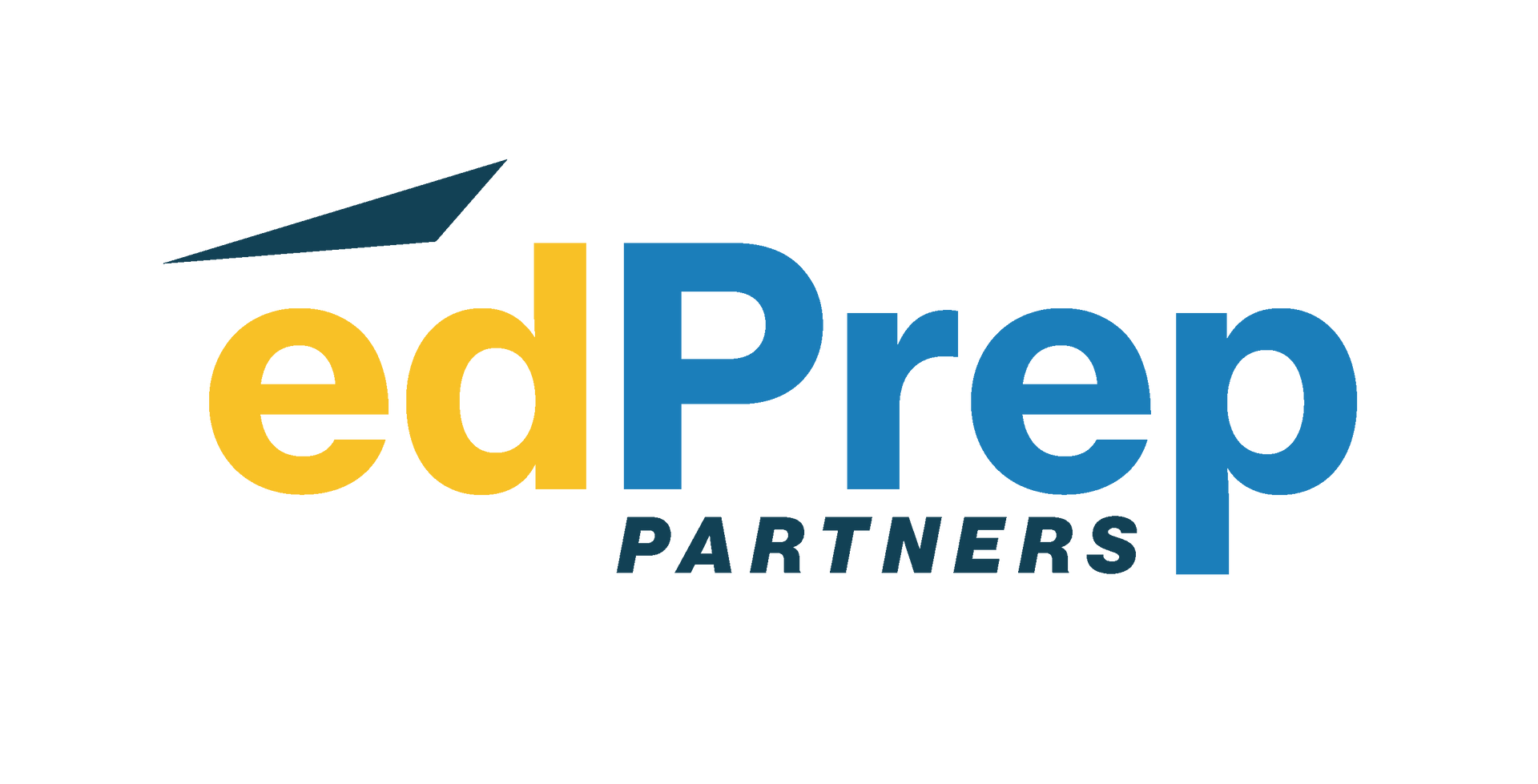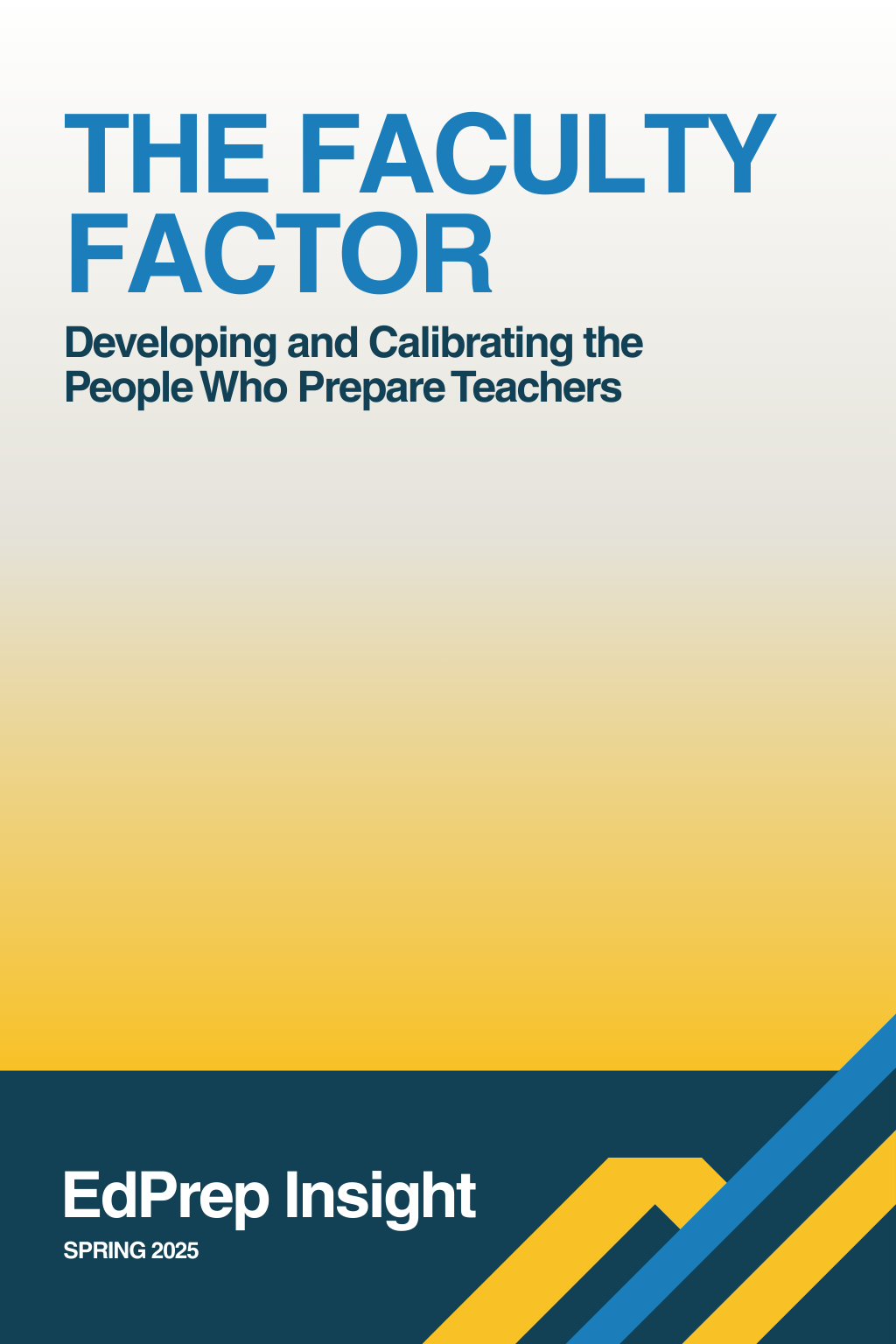The Faculty Factor: Elevating the Teacher Educators Who Equip Future Teachers
The Faculty Factor: Elevating the Teacher Educators Who Equip Future Teachers
We can’t raise the bar for teachers without raising the bar for those who prepare them.
In the national conversation on teacher readiness, the spotlight often lands on curriculum, high-quality instructional materials, clinical models, or candidate recruitment. But behind every well-prepared teacher is a teacher educator—a faculty member, field supervisor, or mentor whose impact can either sharpen or stall a candidate’s development. As educator preparation evolves to meet a long-recognized need—practice-based instruction supported by real-time coaching and high-quality feedback—we must extend the same level of development and accountability to the people preparing teacher candidates. Quality preparation doesn’t stop at program design; it lives and dies in the instructional practice of teacher educators.
Why Teacher Educator Practices Matter
Research confirms what many EPP leaders already know: the quality of support candidates receive from faculty and field-based educators is one of the strongest predictors of instructional readiness. Yet in many programs, the individuals preparing teachers—particularly clinical supervisors, adjunct faculty, and mentor teachers—receive little structured training, limited feedback, and no ongoing development in how to support candidate growth.
Studies show that teacher educators and program design structures significantly influence the quality of clinical experiences and the integration of theory and practice (Burns et al., 2015; Zeichner, 2010). Additionally, candidates are more instructionally effective when placed in settings where clinical educators provide targeted, high-quality feedback—emphasizing the direct link between educator practice and candidate readiness (Ronfeldt, 2014).
The EdPrep Partners Performance Framework makes this clear: high-quality teacher educators are not just content experts or course designers—they are instructors of teaching practice. Their role extends beyond delivering content, to modeling, coaching, and guiding candidates toward instructional proficiency. Strong preparation programs recognize that quality teaching at every level—from the P–12 classroom to the coursework and field supervision for candidate development—depends on the knowledge and skill of those doing the preparation of teacher candidates. To support candidate growth, teacher educators must be able to:
- Model effective instructional practices in their own teaching and the pedagogies they are developing in candidates—clearly labeled and intentionally scaffolded to ensure candidates understand not just the what, but the why and how of strong instruction.
- Observe candidate practice with precision and consistency, using shared criteria and developmental trajectories to prioritize both the what and the how of effective teaching.
- Deliver timely, high-quality oral and written feedback that is actionable, aligned to defined criteria, and anchored in candidate developmental progressions.
- Use shared tools, rubrics, and performance benchmarks to support instructional growth—clearing the path for candidates, identifying when intervention is needed, and clearly communicating where a candidate is, what’s missing, and what’s next.
- Facilitate structured coaching and support cycles that promote candidate reflection, guide next steps, and move candidates from analysis to rehearsal to enactment—while adjusting teacher educator practice in response to candidate needs.
This isn’t evaluative work—it’s instructional. It demands intentional practice, ongoing calibration, and a shared vision of what high-quality preparation looks like.
Yet while we invest heavily in developing teacher candidates, the development of those preparing them is too often overlooked. Without strong systems to support teacher educator practice, program improvement remains surface-level—and real instructional change stalls.
Persistent Gaps in Teacher Educator Development & Practices
Despite the clarity of what teacher educators must be able to do, most programs lack the infrastructure to support these core practices. Across the field, persistent challenges in teacher educator development are well known—confirmed by research, surfaced in stakeholder feedback, and reinforced through the diagnostic and technical assistance work of countless programs and organizations.
- Hiring and onboarding of clinical supervisors is inconsistent and misaligned. Clinical supervisors are often hired late, selected for convenience or availability rather than their ability to teach or coach aspiring educators. Many are retired principals or former educators without recent classroom experience or training in practice-based teacher development. They are onboarded inconsistently—or not at all—and often operate in silos, disconnected from coursework, program goals, and shared candidate expectations. Coaching practices vary widely, with little to no accountability for the quality of support provided.
- Faculty expectations and instructional messages are fragmented. Faculty expectations also vary, sending mixed messages to candidates about what strong instruction looks like. In the absence of shared tools or developmental benchmarks, feedback and debriefs are inconsistent. Too often, candidates receive generic advice or “tips and tricks” rather than evidence-based coaching grounded in observed practice and instructional impact. Few faculty provide rehearsal opportunities or explicitly connect feedback to candidate developmental trajectories.
- Professional learning for faculty and field-based educators is limited. Many are excluded from ongoing development or receive one-off trainings that lack follow-up or coherence. They often have little exposure to their program’s instructional framework, teacher educator practices, or core tools—leaving them underprepared to support candidate growth in consistent, aligned ways.
- Observation, feedback, and rehearsal practices lack calibration. Most programs lack shared coaching protocols, defined performance criteria for pedagogies and content-specific practices, or normed expectations for feedback and evaluation. As a result, teacher educators rely on their own interpretations of quality, leading to wide variation in what ‘good teaching’ looks like and how it’s communicated to candidates.
- Feedback and accountability structures for teacher educators are weak or nonexistent. While candidates are routinely observed, evaluated, and coached, the same cannot be said for the individuals responsible for candidate development. Faculty, clinical supervisors, and mentor teachers often operate without receiving feedback on their own practice—no observations, no coaching, and no performance expectations tied to their impact as teacher educators. Without structures to assess and develop teacher educator effectiveness, programs cannot ensure consistency, quality, or improvement across candidate experiences.
While these challenges often surface locally, they reflect a broader systemic gap in how we develop and support the people who prepare teachers. They are symptoms of a broader systemic problem: the absence of robust infrastructure for developing and supporting the people who prepare teachers. And when left unaddressed, these gaps undermine even the strongest curriculum or clinical placement design.
If we care about candidate quality, we can’t leave teacher educator quality to chance.
What Strong Programs Do Differently
Effective educator preparation programs recognize that developing teacher candidates requires equally rigorous investment in the development of teacher educators. They implement structured systems that align with research-backed practices, ensuring that teacher educators are equipped to model, coach, and support candidates effectively.
- Start with clear expectations for teacher educator practice.
Strong programs define what quality looks like—not just for candidates, but for the people developing them. They establish explicit competencies for faculty, clinical supervisors, and mentor teachers aligned to research-based teacher educator practices. These expectations anchor coaching protocols, feedback cycles, and performance reviews—replacing ambiguity with clarity. - Onboard and train all teacher educators with purpose.
Onboarding is not an afterthought. Effective programs provide structured, role-specific training before a course is taught or a candidate is coached. Whether full-time faculty or part-time field supervisors, every educator receives grounding in the program’s instructional model, pedagogical expectations, feedback protocols, and the developmental trajectory of candidates. - Embed coaching and rehearsal into teacher educator development.
Programs that prioritize practice-based preparation also ensure that teacher educators themselves rehearse the practices they’ll be facilitating. This includes opportunities to model instructional strategies, analyze candidate performance, and role-play feedback conversations—all grounded in the same tools and criteria expected of candidates. - Observe, support, and develop their teacher educators—routinely.
Strong programs don’t just evaluate teacher educators—they coach them. Faculty and clinical educators receive feedback on their instructional moves, the quality of their feedback to candidates, and their alignment to core pedagogies. Observation and coaching cycles are routine, not reserved for remediation. The goal isn’t compliance—it’s growth. - Build shared infrastructure to calibrate and align.
To ensure consistency across courses, supervisors, and sites, strong programs implement shared tools: observation rubrics, coaching protocols, feedback templates, and performance benchmarks that make expectations visible. These tools are used not only with candidates, but with the teacher educators who support them—ensuring everyone is working from the same definition of quality. - Treat teacher educator development as ongoing, not episodic.
Professional learning is structured, job-embedded, and responsive. Strong programs create feedback loops from candidate performance to teacher educator development—recognizing that improving instruction at the candidate level requires skill-building at the educator level. They invest in communities of practice, calibration routines, and data-driven development plans.
This work requires intention, structure, and investment. But the payoff—better-prepared candidates who are ready on day one—is worth it.
A Call to Action: Elevating the Faculty Factor
If we’re serious about dramatically improving teacher preparation, we have to begin with those responsible for delivering it. The research is clear. The practices are clear. And the need is urgent.
We’ve long known that strong preparation requires aligned coursework, clinical experiences, and access to high-quality instructional materials. Even well-designed programs can struggle to deliver on their promise if faculty, supervisors, and mentors lack the support to bring them to life. Strong programs support candidates—but that support is only as effective as the people delivering it. And when those people lack the skills, structures, and support to model and develop effective instruction, candidates enter classrooms unready for day one.
Teacher educator development is not a side issue—it’s the fundamental driver of program quality.
At EdPrep Partners, we believe this is one of the most urgent and actionable levers for strengthening preparation nationwide. That’s why our work—spanning diagnostics, technical assistance, and implementation support—centers on developing the practices of teacher educators. We help programs define expectations, build infrastructure, and implement systems that elevate faculty, supervisors, and mentors as skilled instructors of teaching.
Programs that make this investment aren’t just building stronger teams. They’re improving candidate outcomes, strengthening partnerships, and delivering on the promise of readiness for every candidate.
Let’s raise the bar—for teacher educators, for teacher candidates, and for the future of the profession.
Let’s make teacher preparation better—together.
Calvin J. Stocker
Founder & CEO, EdPrep Partners
A Note on the Field’s Progress & TeachingWorks
I’ve long championed and supported the development of both innovation and attention in this space, and EdPrep Partners will continue that commitment—focusing teacher educator development as a core driver of program quality. Our technical assistance is grounded in the knowledge, skills, and systems that enable faculty and supervisors to prepare candidates well. We recognize the essential contributions of partners who have shaped this work nationally. TeachingWorks, in particular, has meaningfully codified what it means to prepare the people who prepare teachers—bringing clarity, structure, and urgency to the field. Their thought leadership continues to elevate expectations and sharpen the vision for teacher educator practice. We are proud to learn from and alongside them.
Stay Connected
If you're interested in learning more, exploring collaboration or technical assistance, or just want to catch up, we’d love to connect:
About EdPrep Partners
Elevating Teacher Preparation. Accelerating Change.
EdPrep Partners is a national technical assistance center and non-profit. EdPrep Partners delivers a coordinated, high-impact, hands-on technical assistance model that connects diagnostics with the support to make the changes. Our approach moves beyond surface-level recommendations, embedding research-backed, scalable, and sustainable practices that most dramatically improve the quality of educator preparation—while equipping educator preparation programs, districts, state agencies, and funders with the tools and insights needed to drive systemic, lasting change.



